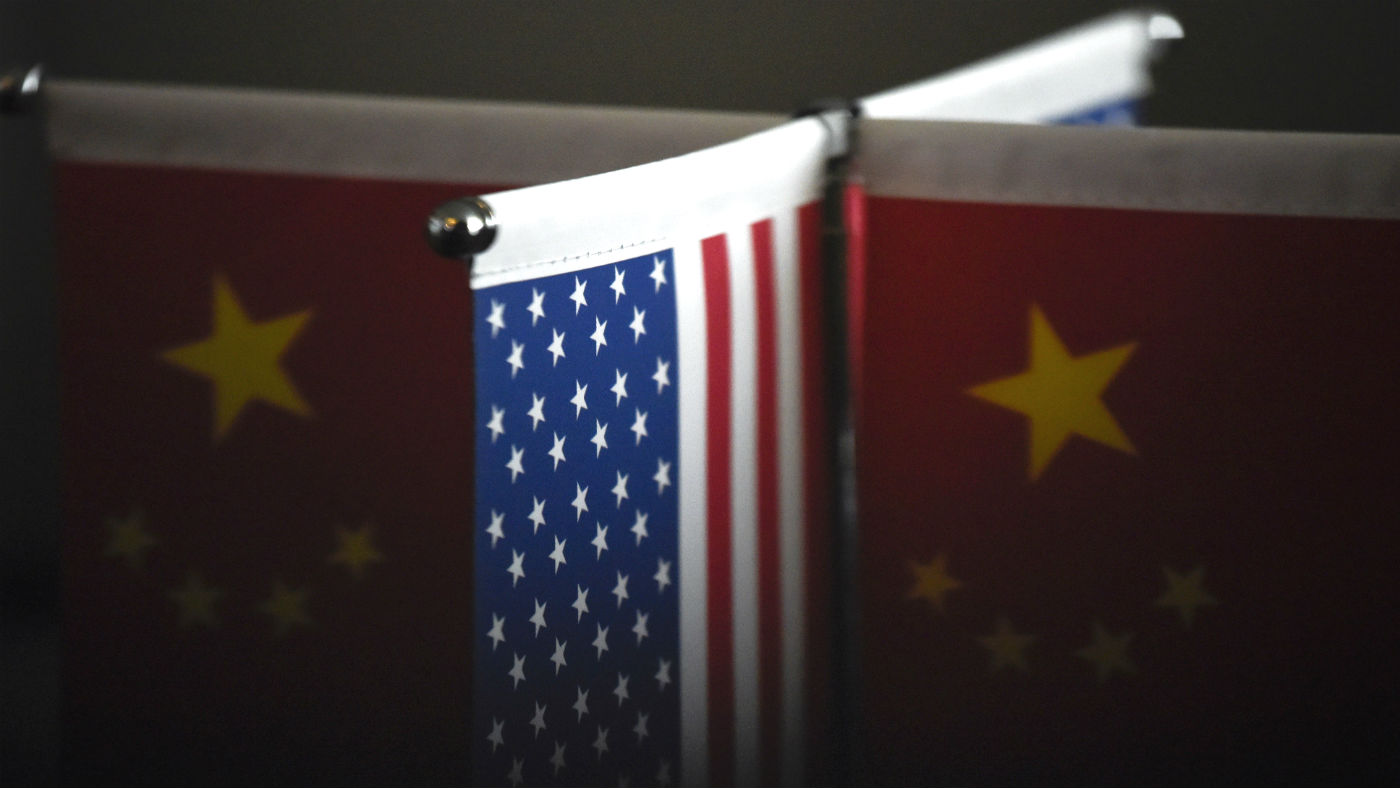Former Trump trade chief says tariff war backfiring
Gary Cohen warns tariffs have impacted US manufacturing and been a ‘convenient excuse’ for China to slow overheating economy

A free daily email with the biggest news stories of the day – and the best features from TheWeek.com
You are now subscribed
Your newsletter sign-up was successful
Donald Trump’s former chief economic advisor has warned that the US president’s ongoing trade war has backfired, and is actually harming the US economy more than China.
Speaking to the BBC, Gary Cohen said the tariff battle had had a “dramatic impact” on US manufacturing and capital investment while it provided “a very convenient excuse” for China to slow down its overheated economy.
The former Goldman Sachs chairman served as director of the National Economic Council in the Trump administration from January 2017 to April 2018. He repeatedly clashed with the president over his “America First” economic nationalism policy, finally resigning last year after Trump decided to impose import tariffs on steel and aluminium.
The Week
Escape your echo chamber. Get the facts behind the news, plus analysis from multiple perspectives.

Sign up for The Week's Free Newsletters
From our morning news briefing to a weekly Good News Newsletter, get the best of The Week delivered directly to your inbox.
From our morning news briefing to a weekly Good News Newsletter, get the best of The Week delivered directly to your inbox.
Around the same time, the Trump administration slapped 25% tariffs on $250bn (£206bn) worth of Chinese imports, before China retaliated by targeting $110bn in hiked tariffs on US products later in 2018.
“Cohn is less than flattering about the US president's policies,” says BBC North America editor Jon Sopel. “He thinks the trade wars have created geopolitical uncertainty, which is stopping businesses from investing. Strikingly he also thinks that, for all the rhetoric, the trade war with China is hurting the US more than it is the Chinese”.
Instead of punishing China, tariffs have in fact damaged job creation in the American manufacturing sector while allowing the Chinese government “to control its economy as desired, despite tariffs, by changing the availability of credit”, says The Independent.
The US had threatened to tax another $300bn in Chinese imports earlier this year before moving towards more conciliatory rhetoric, but after declaring a temporary truce in June, US and Chinese trade negotiators have failed to find a breakthrough to end the 18-month impasse. And while both sides agreed that the latest discussions in Shanghai this week were “constructive”, “there’s still no indication that the trade war will come to an end any time soon,” says CNN Business.
A free daily email with the biggest news stories of the day – and the best features from TheWeek.com
Major issues still to be resolved include intellectual property rights, firm commitments on the purchase of US agriculture goods and the blacklisting of Chinese firms.
Within the context of a protracted trade war Cohen’s comments will not have been well received by Trump, but with a growing economy, record employment and interest rates falling, concerns about the impact of his protectionist trade policies will for now at least be minimal.
-
 Political cartoons for February 15
Political cartoons for February 15Cartoons Sunday's political cartoons include political ventriloquism, Europe in the middle, and more
-
 The broken water companies failing England and Wales
The broken water companies failing England and WalesExplainer With rising bills, deteriorating river health and a lack of investment, regulators face an uphill battle to stabilise the industry
-
 A thrilling foodie city in northern Japan
A thrilling foodie city in northern JapanThe Week Recommends The food scene here is ‘unspoilt’ and ‘fun’
-
 Currencies: Why Trump wants a weak dollar
Currencies: Why Trump wants a weak dollarFeature The dollar has fallen 12% since Trump took office
-
 TikTok: New owners, same risks
TikTok: New owners, same risksFeature What are Larry Ellison’s plans for TikTok US?
-
 Trump wants a weaker dollar, but economists aren’t so sure
Trump wants a weaker dollar, but economists aren’t so sureTalking Points A weaker dollar can make imports more expensive but also boost gold
-
 Leadership: A conspicuous silence from CEOs
Leadership: A conspicuous silence from CEOsFeature CEOs were more vocal during Trump’s first term
-
 The end for central bank independence?
The end for central bank independence?The Explainer Trump’s war on the US Federal Reserve comes at a moment of global weakening in central bank authority
-
 Can Trump make single-family homes affordable by banning big investors?
Can Trump make single-family homes affordable by banning big investors?Talking Points Wall Street takes the blame
-
 Phish food for thought: Ben & Jerry’s political turmoil
Phish food for thought: Ben & Jerry’s political turmoilIn the Spotlight War of words over brand activism threatens to ‘overshadow’ the big ice cream deal
-
 What a rising gold price says about the global economy
What a rising gold price says about the global economyThe Explainer Institutions, central banks and speculators drive record surge amid ‘loss of trust’ in bond markets and US dollar